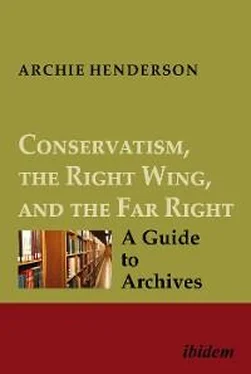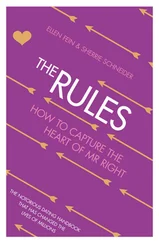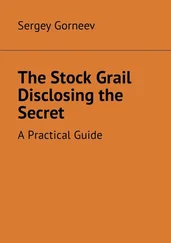Location: Hoover Institution Archives, Stanford University, Stanford, California 94305-6010
Description: John Patrick Diggins (1935-2009) was an intellectual historian, university professor, and author. Letters by the American philosopher Sidney Hook and the American journalist and author James Burnham, relating primarily to the influence of Marxism on various American intellectuals.
Finding aid:
http://www.oac.cdlib.org/findaid/ark:/13030/kt0x0nd97w/entire_text/
[0797] John P. Diggins Papers, 1966-2008, MssCol 18353
Location: Manuscripts and Archives Division, Stephen A. Schwarzman Building, Brooke Russell Astor Reading Room, Third Floor, Room 328, New York Public Library, Fifth Avenue at 42nd Street, New York, NY 10018-2788
Description: John Patrick Diggins (1935-2009) was an intellectual historian, university professor, and author. The John P. Diggins papers consist of correspondence, project files, and teaching files. Series I. Correspondence, 1966-2008, includes correspondence with James Burnham, Will Herberg, Sidney Hook, Arthur Schlesinger Jr., Daniel Bell, and Heritage Foundation official Robert Huberty. Series III. Teaching and lecture files, contains files on Civil rights, Communism and Fascism, Conservatism and the Constitution, Long and Coughlin, New American Right, Populism, and Race.
Finding aids:
http://archives.nypl.org/mss/18353
http://archives.nypl.org/mss/18353/pdf
http://archives.nypl.org/uploads/collection/pdf_finding_aid/diggins.pdf
http://www.nypl.org/sites/default/files/archivalcollections/pdf/diggins.pdf
[0798] Charles Fremont Dight papers, 1883-1984, File no. P1628 [partly digital collection]
Location: Minnesota Historical Society, 345 W. Kellogg Blvd., St. Paul, MN 55102-1906
Description: C. F. Dight (1856-1938) was a physician, professor, and Minneapolis alderman. In the early 1920s Dight launched a crusade to bring the eugenics movement to Minnesota. He believed that many of society's evils could be eliminated through selective breeding. His main lines of approach included eugenics education, changes in marriage laws, and the segregation and sterilization of "defectives." He organized the Minnesota Eugenics Council in 1923 and began campaigning for a sterilization law. In 1925 the Minnesota legislature passed a law allowing the sterilization of the "feeble-minded" and insane who were resident in the state's institutions. For the next several legislative sessions Dight fought unsuccessfully for expansion of the law to include sterilization of the unfit outside of institutions. The Minnesota Eugenics Society became moribund by the early 1930s, but Dight continued his legislative efforts as late as 1935 and also continued to speak and write on the subject of eugenics. In 1935 he published History of the Early Stages of the Organized Eugenics Movement for Human Betterment in Minnesota, a 69-page pamphlet. In 1936 he published Call for a New Social Order, a 181-page book comprising three parts: memoirs of his years as a socialist Minneapolis alderman, 1914-1918; published versions of his radio talk on eugenics; and essays on "mental faculties" and other subjects. The papers consist of correspondence (undated and 1892-1936), photographs (1879-1930s), lecture notes (1900-1908), essays, article manuscripts (1906-1910, 1933-1936), newspaper clippings (1900-1927), scrapbooks (1914-1930s), radio scripts (1928, 1933), editorials (ca. 1921-1935), income tax forms (1919-1936), pamphlets, flyers, bills, minutes, and printed matter. Includes correspondence with Adolf Hitler [a letter to Hitler is reproduced at http://libguides.mnhs.org/eugenics/primary]; mimeographed copies of correspondence between Theodore Roosevelt and Ernest Lundeen (Oct.-Nov. 1917) regarding Lundeen's patriotism and his views on the war in Europe; Minnesota Eugenics Society records; and files on Eugenics Record Office and Eugenics Research Association, including Dight's correspondence with Harry H. Laughlin regarding eugenics, sterilization, and eugenics conferences; American Eugenics Society (New Haven, Conn.); National Committee on Federal Legislation for Birth Control, including form letters signed by Margaret Sanger, president; and Human Betterment Foundation (Pasadena, Calif.), including correspondence of Dight with E. S. Gosney (foundation president) and Paul Popenoe (secretary). Includes correspondence with Adolf Hitler [online at http://www2.mnhs.org/library/findaids/P1628/pdfa/P1628-00001.pdf].
Websites with information:
http://libguides.mnhs.org/eugenics/primary
http://www2.mnhs.org/library/findaids/index_D.htm
Finding aid:
http://www2.mnhs.org/library/findaids/P1628.xml
[0799] Dight Institute Records, undated, 1930-1989, uarc 1012
Location: University of Minnesota Archives, 218 Elmer L. Andersen Library, University of Minnesota, 222 21st Avenue South, Minneapolis, MN 55455
Description: In the summer of 1941, the University of Minnesota established The Charles Fremont Dight Institute for the Promotion of Human Genetics, whose benefactor was Charles Fremont Dight (1856-1938). Dight was an advocate of sterilization of the "unfit" (anyone deemed a criminal or mentally handicapped). In 1925, a sterilization law did go into effect in Minnesota, the 17th state to pass such a law; it was to remain on the books until 1975. This sterilization law was intended to delay marriages of the feeble-minded, epileptic, and insane, until they could be sterilized, was "voluntary," and applied only to institutionalized individuals. Dight's furor in support of the eugenics of the 1920s and 1930s included possible support of Hitler's eugenics program, honoring Lindbergh for his "hereditary endowment," and advocating the selective breeding of humans. Underlying this early eugenics, enthusiastically supported by many prominent people, including scientists and ministers, was a reflection of the racism always present within the society. His will left the balance of his estate, approximately $75,000, to the University of Minnesota "to promote biological race betterment, better human brain structure and mental endowment by spreading abroad the knowledge of the laws of heredity and the principles of eugenics." Dr. Clarence P. Oliver was the Institute's first director. He resigned in 1946 to establish a center of human genetics at the University of Texas at Austin. Includes correspondence with C.M. Goethe.
Finding aids:
http://discover.lib.umn.edu/cgi/f/findaid/findaid-idx?c=umfa;cc=umfa;q1=Dight%20Institute%20Records;rgn
=main;view=text;didno=uarc01012
http://special.lib.umn.edu/findaid/xml/uarc01012.xml
[0800] Correspondence, Literary Manuscripts and Other Papers of Sir Charles Wentworth Dilke, 2nd Bart. 1869, P.C., M.P., [1823-1922], Add MS 43874-43967, 49385-49455, 49610-2, 58227-58234
Location: Western Manuscripts collection, British Library, 96 Euston Road, London NW1 2DB, United Kingdom
Description: Sir Charles Wentworth Dilke (1843-1911) was a British politician and supporter of the Imperial Federation League. Correspondence, literary manuscripts and other papers. Add MS 43916 includes a letter from Arthur H. Loring, Secretary, Imperial Federation League, to Dilke, 1897.
Websites with information:
http://www.bl.uk/reshelp/pdfs/readerguide1.pdf
http://www.bl.uk/reshelp/findhelprestype/manuscripts/namedmanuscripts/namedmanuscriptsd/index.html
Catalogue description:
http://searcharchives.bl.uk
http://molcat1.bl.uk/
[0801] Elizabeth Dilling Papers
Location: Christian Liberty Academy, 502 West Euclid Avenue, Arlington Heights, Illinois 60004
Description: Elizabeth Dilling Stokes (1894-1966) was an American anti-Communist, isolationist, and later anti-Semitic social activist. The papers contain correspondence with George Deatherage.
References:
Glen Jeansonne, Women of the Far Right: The Mothers' Movement and World War II (Chicago: University of Chicago Press, 1996), p. xvi; Christine K. Erickson, "'So much for men': Conservative Women and National Defense in the 1920s and 1930s," American Studies, 45:1 (Spring 2004): 85-102 (p. 101 n.45), https://journals.ku.edu/index.php/amerstud/article/viewFile/3010/2969.
Читать дальше












